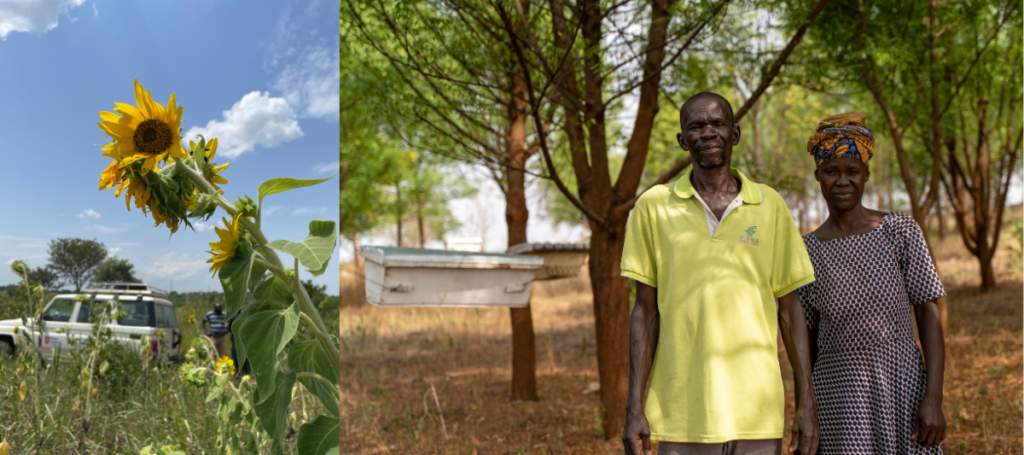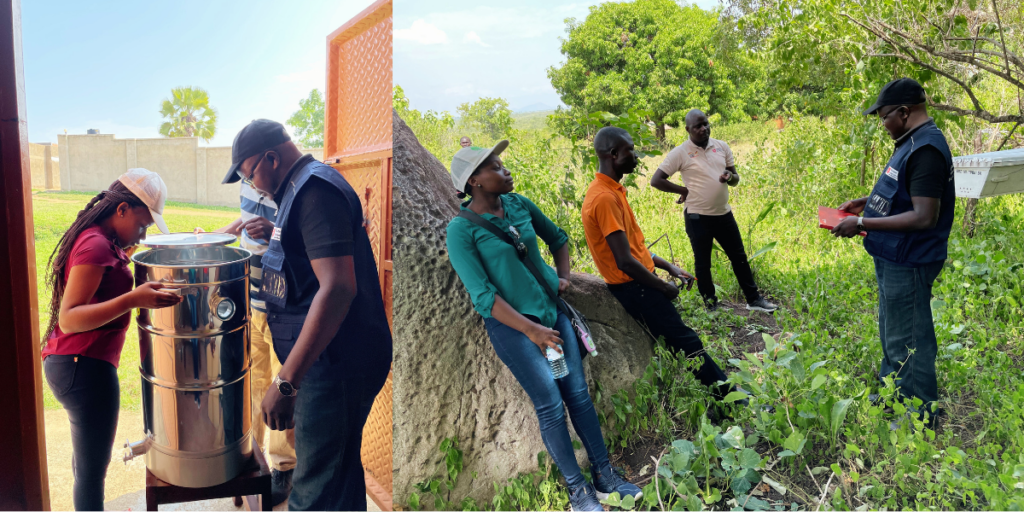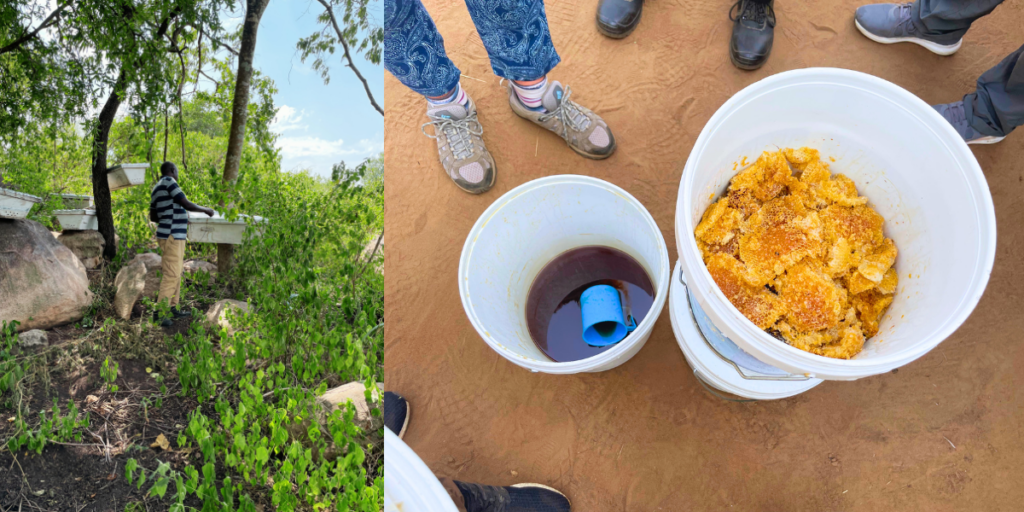By: Julia Einaudi, Associate Board Member, Green Empowerment
Picture this: bee farmers in the Terego district, with honey sales as a significant source of income, facing hurdles such as a low bee population in the hives and a need for nearby processing facilities. The farmers in this region, who are a mix of refugees and local community members, rely heavily on agricultural production as their primary livelihood, and yet they don’t have access to the resources necessary to work efficiently. Because there is limited electricity access in the area, beekeeping can be very time-consuming and physically demanding. Some farmers must rely on the use of hand crank extractors, while others who entirely lack access to honey-extracting equipment are forced to sell their unprocessed honey to intermediaries at around 50% below the market price. Given these pervasive challenges, it is clear that a viable solution is needed in order to provide these farmers with the resources they require. Now, envision the turning point—a honey processing facility powered by renewable energy.

Sweet Beginnings: Project Overview
The Victim Relief Alliance (TVRA) is leading this project with technical and project planning support from Green Empowerment and generous funding from EKOEnergy Ecolabel. Community-based TVRA has over 15 years of experience in humanitarian response and development work in the West Nile region, and four years of experience supporting refugee settlements and host communities with their beekeeping businesses. The honey processing plant project aligns with one of Green Empowerment’s core programs: providing energy and water for critical community services. In this case, the service will be a communally owned and operated honey processing plant. It’s not just about honey; it’s about building a foundation for economic opportunity and sustainability in the face of pressing climate change-related issues.
When TVRA first approached Green Empowerment for support with this project, they had already received a generous donation of honey processing equipment. What they did not have was a building to put the equipment in or a power source to run this equipment – the national power grid does not reach the land where they hoped to build the facility. Together we started working on plans to build a centrally located (between bee-keeping communities) facility that will be powered by a 6.3kW solar system.

The project follows Green Empowernent’s model of community-owned renewable energy projects and their three components: community mobilization, system installation and capacity-building. The beekeepers themselves will give their time and manual labor to help build the honey house and are contributing 10% of the initial budget to establish a maintenance fund for the facility. During the construction period, farmers will learn how to train fellow farmers in order to foster a sustainable knowledge-sharing network. The project also includes business training on topics such as food safety, marketing and record keeping, and managing the processing facility and the energy system. Finally, Green Empowerment will support the community in creating a maintenance plan that includes component replacement and collecting and managing funds for system operation and maintenance.
Powered by a 6.3 kW solar system, the plant will house various honey processing equipment (including an extractor, melter, and bottling and labeling machines), which will enable farmers to process more honey with less manual labor and produce packaged honey that is ready for retail. Construction is expected to be complete by the end of 2023 and training activities will continue through March 2024 – at which point the honey house will be fully operational.
“The honey processing plant project is a reflection of the work Green Empowerment supports; working with rural communities and following their lead, while providing the much needed support to improve their livelihoods through beekeeping.”
Benaville Nagudi, Green Empowerment Uganda Program Coordinator
The Ripple Effect of Renewable Energy
Our vision for the future is one where renewable energy solutions elevate the health and well-being of people and the planet. The solar-powered honey processing plant powers economic opportunity with environmentally friendly technology.

“As climate change’s impact ripples across the frontlines of the most vulnerable communities in Northern Uganda, bee keeping is a great, climate-smart option that would reap benefits for farmers all year round as it’s not reliant on soil quality or rainfall. We envision farmers fully maximizing their outputs from beekeeping while leveraging the untapped market for productive uses of renewable energy. We believe this project is a first step towards achieving this vision.”
Benaville Nagudi
As we work towards this future, we invite you to be a part of the buzz-worthy success. We would deeply appreciate your support as Green Empowerment explores opportunities for powering the agriculture sector–the backbone of Uganda’s economy. Together, we have the ability to create a truly sustainable future. As Benaville said, “Green Empowerment’s supporters are [making] a tremendous contribution to the communities we serve, and their impact is felt through the work we do with our partners.”
To stay engaged with our work, please follow Green Empowerment on social media (LinkedIn; Instagram; Facebook) and subscribe to our newsletters for updates.

Julia Einaudi is majoring in Environmental Studies at Lewis & Clark College, and is interested in community-driven solutions to the climate crisis. Before becoming an Associate Board Member, Julia previously interned for Green Empowerment and worked on social media and Youtube-related projects.
